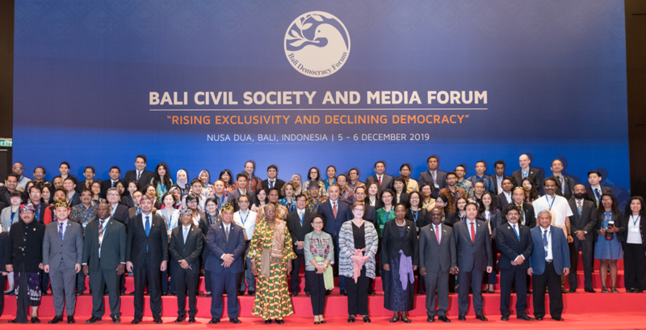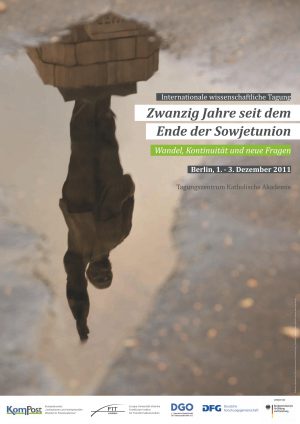Conference of the project network “
Institutions and Institutional Change in Postsocialism”, 28-30 November 2013, Carl Friedrich von Siemens Stiftung, and Ludwig-Maximilian-University, Munich
Eurasian states hold regular elections, but few political regimes in the region meet democratic standards. Non-democratic arrangements of governance have emerged and persisted despite the ‘color revolutions’ and their challenge to incumbents manipulating elections. This situation has generated significant scholarly interest and has resulted in a growing number of studies examining the sources of authoritarian stability. However, this field of research in the social sciences has hitherto been dominated by instrumentalist views of institutions that emphasize the engineering of institutions by utility-maximizing political actors. Institutions are sets of rules structuring interactions, but they are also defined by their legitimatory functions that are embedded in shared historical and cultural understandings. Due to this embeddedness, authoritarian rulers may not create political institutions at will. Rather, political elites depend on their ideational abilities to communicate their actions as meeting expectations of appropriateness. These abilities enable and constrain actors’ use of available frames, discourses, traditions, norms and practices in order to confer legitimacy on the institutions they seek to reform and build.
The envisaged workshop focuses on these legitimatory functions of institutions and the legitimation strategies of political actors in consolidating and contesting authoritarian governance: How do ruling political actors draw on the repertoire of legitimations available in a given national culture and history? How do they generate popular loyalty and elite-wide acceptance for institutions stabilizing their political authority, given that any authoritarian pretensions would be normatively unacceptable in public discourse? Sources of institutional legitimacy include culturally ingrained ideas of national identity, historical experience, constitutional rule, effective government, political leadership, economic development, but also the rituals of waging and solving social or political conflict. Ruling elites interpret these ideas in ways that link their particular institution-building projects to historically and culturally accepted practice.
The proposed focus on legitimation implies that political domination can not rely on coercion or repression alone, but also presupposes voluntary compliance of people or elite groups that is based on beliefs about legitimate authority. Since rulers can not enforce such compliance unilaterally, it is appropriate to conceive this process of claiming and granting legitimacy as ‘governance’, a term introduced to highlight the non-hierarchical and societal dimensions of governing. In accordance with this broader view, the workshop asks how institutional legitimacy is contested, eroded and destroyed. Which legitimatory strategies are chosen by protest and opposition actors and how have these strategies altered the symbolic political field of legitimation?
By linking institutional politics and change to culture and history, the workshop seeks to facilitate scholarly exchanges across disciplinary boundaries. In addition, the workshop intends to look beyond Eurasia and encourage comparisons with legitimatory struggles and authoritarian governance in other regions of the world.
Download program: Program_131130_pub
Contributions to the Conference have been published here.

 The dissolution of the Soviet Union at the end of 1991 marked the collapse of a state, of an empire, and of a project of an alternative modernity. Initially, the collapse of the “Soviet civilization” seemed to provide an opportunity for the countries of the CEE and Eurasia to arrive in the West with its capitalist democracies, its liberal individualist values, and a global pax americana. History as a struggle between ideologies appeared to have reached its (liberal) end. This was an error of judgement, however. Since then, new, non-Western powers and global threats have emerged, and the historico-political region “Eastern Europe” has disappeared. Today, this region is more diverse than any other region in the world: while most of the countries of Central and Southeast Europe adapt successfully to the liberal standards of the West and are now members of the European Union, the post-Soviet states have embarked on a search for alternatives. Here, we encounter authoritarian and semi-authoritarian regimes and state-run capitalist economies, new regional cooperation and security alliances, as well as attempts to develop local models or to learn from other non-Western experiences, especially from China and the Asian “tigers”.
The dissolution of the Soviet Union at the end of 1991 marked the collapse of a state, of an empire, and of a project of an alternative modernity. Initially, the collapse of the “Soviet civilization” seemed to provide an opportunity for the countries of the CEE and Eurasia to arrive in the West with its capitalist democracies, its liberal individualist values, and a global pax americana. History as a struggle between ideologies appeared to have reached its (liberal) end. This was an error of judgement, however. Since then, new, non-Western powers and global threats have emerged, and the historico-political region “Eastern Europe” has disappeared. Today, this region is more diverse than any other region in the world: while most of the countries of Central and Southeast Europe adapt successfully to the liberal standards of the West and are now members of the European Union, the post-Soviet states have embarked on a search for alternatives. Here, we encounter authoritarian and semi-authoritarian regimes and state-run capitalist economies, new regional cooperation and security alliances, as well as attempts to develop local models or to learn from other non-Western experiences, especially from China and the Asian “tigers”.